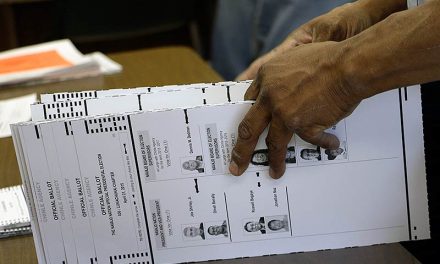
Health advocates push to extend, amend junk food tax
SALT LAKE CITY
Since 2015 junk food items like Hot Cheetos, soda, and gummy worms have been taxed 2% under the Healthy Diné Nation Act of 2014 – generating more than $7.8 million for Diné communities over the last five years – and public health officials across the Navajo Nation want this tax to extend beyond 2020.
If the tax does not pass the Navajo Nation Council, it will expire by the end of December. The Healthy Diné Nation Act of 2014 – also known as the “junk food tax” – is lauded by public health advocates and is also an example of how a Native nation employs its own laws for the betterment of its peoples.
“This is public health working at the ultimate end, and true tribal sovereignty being exercised by usage of their tax monies,” says Gloria Ann Begay, executive director for the Diné Food Sovereignty Alliance, who encourages the Council to consider passing amendments to the 2014 law and to extend the tax until most, if not all, Diné citizens are healthier than they are now.
Begay, who has been an advocate for HDNA since its inception and a former member of the Diné Community Advocacy Alliance, says the Diné public needs to engage with the bill, and learn how their own chapter governances are using the junk food tax for their community health needs.
This legislation could come at no better time with some preventable deaths attributed to COVID-19 being associated with pre-existing conditions like diabetes, heart disease and cancer — all of which can be prevented by eating wisely and exercising.
“I’ve seen some past reports that the tax revenue is going down each year, and that is good, which means we are seeing how people are not buying so much junk food,” Begay said.
She was referring to data from the National Institute on Minority Health and Health Disparities and the Robert Wood Johnson Foundation.
“Until they stop eating junk food,” she said, “it should (keep going).”
According to the evaluation by a slew of coalition partners, they found that 99.1% of tax collected went to all 110 chapters, with an average allocation of $13,171 per chapter; and that community projects from the tax went to walking trails, exercise equipment, food for events, playgrounds, greenhouses, wellness centers, and other wellness and recreational activities.
Evaluators found that 194 cultural/traditional activities occurred from the junk food tax, and that 117 were also youth- and elder-focused.
Evaluators also found that 87% of stores in the Navajo Nation are applying the junk food tax and 55% are also applying the healthy food tax exemption. In a survey conducted in 22 chapters with a sample of 238 people, 85% support or are neutral towards HDNA.
Begay added that the evaluation team includes the Navajo Epidemiology Center, Navajo Nation Division of Community Development, Office of the Navajo Tax Commission, Northern Arizona University, Community Outreach and Patient Empowerment, Diné Community Advocacy Alliance, and Diné Food Sovereignty Alliance.
The findings of the evaluation team also led to several Diné public health practitioners being published in the public health journal “Preventing Chronic Disease: Public Health Research, Practice, and Policy” in September 2020 about the effectiveness of HDNA, says Del Yazzie, epidemiologist for the Navajo Department of Health.
“Having such a policy in place for the prevention of chronic diseases and to encourage healthy living practices on the Navajo Nation is what the HDNA is all about,” Yazzie said.
As the sun sets for the Healthy Diné Act of 2014, proposed amendments to the law are currently processing through the Navajo Nation legislative branch, with stops at the Law and Order, Resources and Development, Budget and Finance, Health, Education and Human Services and Naabik’íyáti’ committees, and then the full Council. Earlier this week, the bill passed the Law and Order Committee.
Delegate Amber Crotty, who is the main sponsor of the bill, says that HDNA has been beneficial to Diné chapters with an average annual allocation of $13,100 per chapter, and is an example of how public health is effective during this COVID-19 pandemic, because communities are now organizing with solutions.
“We have solutions in the community and it is another way for our communities to heal themselves,” says Crotty, adding that she hopes that communities begin to organize around food sovereignty, such as growing their own foods to prevent covid-19 exposure while shopping in border towns.
Crotty is also sponsoring the amendments in an effort to help the Navajo Tax Commission better collect and administer the tax beyond 2020. Amendment language would simplify the purpose of the bill’s original intention, which is to tax junk food.
Martin Ashley, executive director for the Office of the Navajo Tax Commission, says that eliminating confusing language like “minimal to no nutritional value food items” to “unhealthy foods and beverages” and adding a 5% allocation for his office to ensure businesses are compliant with the law is a win-win for all, including public health officials who say the tax is changing the behavior of Diné citizens.
“We are trying to specify what is going to be taxed, as opposed to interpreting what is considered ‘minimal to no nutritional value,’’ Martin said, adding that his office has had to go to lengths to read nutritional labels of products to collect the tax. Thus, he and other tax compliance officers encourage language that makes it easier to tax, collect, and administer for all 110 chapters.
For larger chapters like Tuba City, the tax has been beneficial to the general well-being of Diné citizens, said Mike Sixkiller, the chapter’s fair manager and event planner.
“Since we have been getting this money we definitely made full use of it,” Sixkiller said, adding that the most populous chapter in the Navajo Nation creates partnerships and wellness events for community members.
With the COVID-19 pandemic, Sixkiller says community events have been postponed or canceled because of the dangers of contracting COVID-19. As of press time, Tuba City is considered a community with uncontrolled COVID-19 spread, according to the Navajo Department of Health.
Even so, Sixkiller says the chapter is looking at using parts of the junk food tax to begin preplanning for a sports complex, a recreational opportunity that ensures what the tax is intended for – healthy, active Diné.
“This pandemic has showed us that our health is important,” Sixkiller added.








 Highway 264,
Highway 264, I-40, WB @ Winslow
I-40, WB @ Winslow